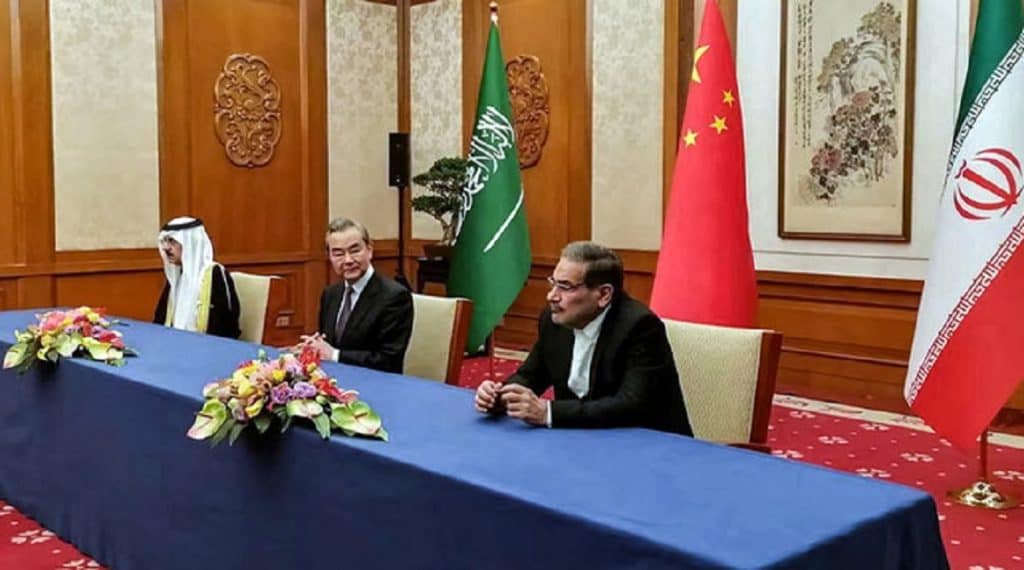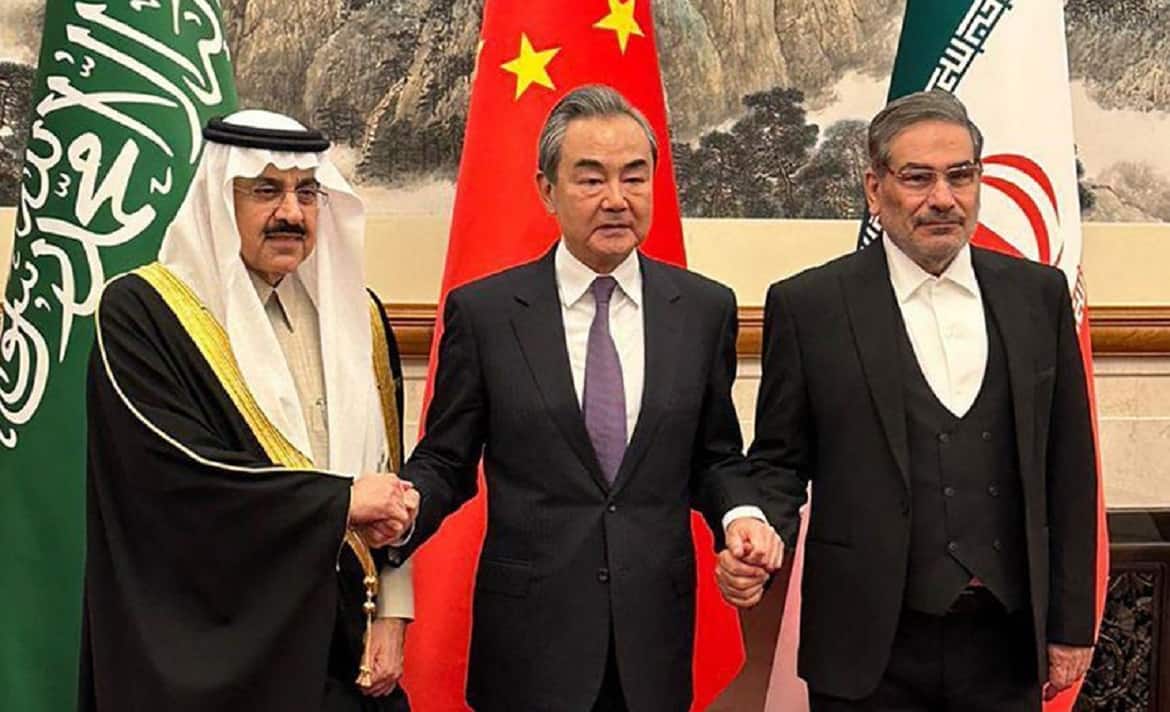By Abdul Rehman
Last March, China brokered an agreement between Saudi Arabia and Iran, putting an end to a decades-long rivalry. The historical rapprochement between Saudi Arabia and Iran was welcomed by the international community, and it is likely to have a significant impact on regional politics and countries affected by the proxy wars between Iran and Saudi Arabia.

The rivalry between Saudi Arabia and Iran has had significant implications on Pakistan, which is a neighbor of Iran and has close ties with Saudi Arabia. Pakistan has always tried to maintain close connections with both countries, but due to economic constraints and international pressure it has not been able to maintain a balance in its relations with them. However, the agreement between Saudi Arabia and Iran may end Saudi pressure on Pakistan and allow Pakistan to maintain independent relations with both Muslim countries.
The rivalry between Saudi Arabia and Iran is a complex and multifaceted conflict that has had a significant impact on the Middle East and beyond. Such conflict has fueled proxy wars in several countries and led to increased sectarianism and tensions within Muslim countries. Pakistan, as a responsible Muslim country, with close ties to both Saudi Arabia and Iran, has not been immune from its impact.
The rivalry between Saudi Arabia and Iran
The rivalry between Saudi Arabia and Iran can be traced back to the 1979 Islamic Revolution, which saw the overthrow of the Shah and the establishment of an Islamic Republic. This was seen as a major threat to Saudi Arabia, which is a Sunni Muslim country and has long regarded Iran, a Shiite Muslim country, as a rival. Since then, the conflict between Iran and Saudi Arabia has taken many different forms, including proxy wars and regional competition for power and influence.
One of the most significant aspects of the Saudi-Iranian rivalry has been the proxy wars fought in several countries, including Syria, Iraq, Yemen, and Lebanon. In Syria, Iran has provided significant support to the government of Bashar al-Assad, while Saudi Arabia has supported opposition groups. In Iraq, Iran has supported Shiite militias, while Saudi Arabia has supported Sunni groups. In Yemen, Saudi Arabia has led a coalition fighting Iran-backed Houthi rebels. In Lebanon, Iran has supported the Shiite group Hezbollah, while Saudi Arabia has backed Sunni groups.
The conflict has also led to increased polarization and sectarianism within the Islamic world.
Saudi Arabia has received support from several Sunni Muslim countries, including the United Arab Emirates, Bahrain, and Egypt. Iran, on the other hand, has received support from Shiite Muslim countries, including Iraq, Syria, and Lebanon.
The impact on Pakistan
Pakistan has maintained close ties with both Saudi Arabia and Iran, but the Saudi-Iran rivalry has put Pakistan in a difficult position. Pakistan has a significant Shia Muslim minority, and tensions between Shia and Sunni Muslims have increased in recent years due to the conflict between Saudi Arabia and Iran. Additionally, Pakistan’s relations with Iran have been strained in recent years over the issue of cross-border terrorism. Iran has accused Pakistan of not doing enough to prevent terrorist attacks by Sunni extremist groups based in Pakistan. Meanwhile, Pakistan has blamed that militants are using Iranian soil to execute terrorist activities in Pakistan. Kulbhushan Jadhav, an Indian spy was apprehended in Pakistan who later claimed to have been active in Pakistan working remotely from Iran.
The peace deal between Iran and Saudi Arabia is deemed a game changer for Pakistan. Dr. Maleeha Lodhi, Pakistan’s former representative to the UN said, “This is a game changer for the region as well as the world”. She adds: “For Pakistan, it opens up new diplomatic and economic opportunities. For decades, Pakistan has followed a policy of balancing relations between Saudi Arabia and Iran, treading very carefully between a strategic ally and a neighbor. Now the rapprochement between the two former rivals means diplomatic space opens up for Islamabad to consider new initiatives and also strengthen ties with Iran”.
The normalization of relations between Iran and Saudi Arabia creates enormous financial and diplomatic opportunities for Pakistan. Without worrying about offending Saudi Arabia, Pakistan can now establish independent economic relations with Iran in the fields of trade and energy. For decades, Pakistan has been the victim of sectarian violence between Shiites and Sunnis. Normalization of ties between Saudi Arabia and Iran could end the proxy between the two countries and defuse sectarian violence in Pakistan.
Pakistan has always supported friendly ties between Saudi Arabia and Iran. However, Pakistan still has to take into account the U.S. sanctions, which prohibit Pakistan from having independent financial relations with Iran. Pakistan has supported cooperation among Muslim countries to counter terrorism in the region and has played a constructive role in bridging gaps between Middle Eastern countries. Now that Saudi Arabia and Iran have signed a peace agreement, Pakistan must create opportunities for itself by developing strong independent diplomatic and economic relations with both countries.
Author: Abdul Rehman – Research Officer at Balochistan Think Tank Network, BTTN, Quetta, Pakistan.
(The opinions expressed in this article are solely those of the author and do not necessarily reflect the views of World Geostrategic Insights).
READ ALSO
|
Implications of the Saudi-Iran deal for South Asia: an interview with Rabia Akhtar |








